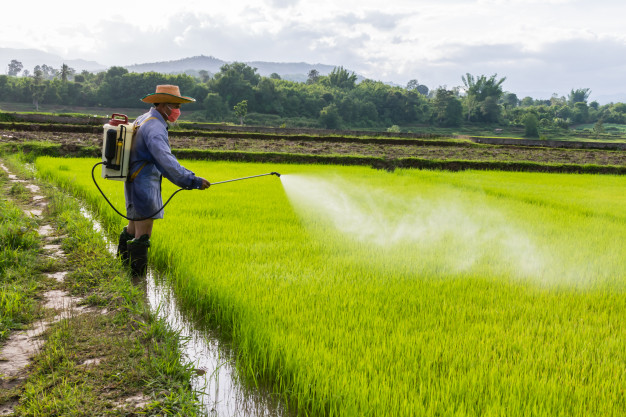The herbicide, Glyphosate (a chemical weed-killer), has been established and held to be a major cause of cancer. In 2015, the United Nations, through its International Agency for Research on Cancer (IARC), conducted a review on glyphosate and classified it as 2A – meaning that it is probably carcinogenic to human life.
The IARC also came to the conclusion that Non-Hodgkin’s lymphoma, and other types of hematopoietic cancer are caused by exposure to glyphosate.
Some countries have proceeded to impose a ban on glyphosate. Whilst countries like the Netherlands have prescribed a complete ban on the herbicide, others have imposed a partial ban, e.g. Sri Lanka limits the use of glyphosate to tea plantations. A number of other countries have passed proposals to ban or partially restrict the sale of the herbicide.
In India, glyphosate is approved to be used only for non-crop areas, and tea plantations. However, despite this, farmers still apply glyphosate on many other crops. According to reports, farmers find it more economical to use this herbicide in killing weeds than resorting to manual weeding.
Unfortunately, even though pesticide/herbicide poisoning has caused a number of deaths, carcinogenic herbicide, such as glyphosate, is still largely sold in India.
Some States like Maharashtra, Telangana, Kerala, and Punjab have unsuccessfully made efforts to impose a restriction on the sale of glyphosate. This is because the present Insecticides Act does not grant States the power to restrict or place bans on any herbicides/pesticides that have been approved by the Union Government.
On the 27th of December, 2017, the Government put out a draft notification bearing the Maximum Residue Limit (MRL) standard for glyphosate. However, till date, the final notification has not been issued. Sometime in 2018, the Food Safety and Standards Authority of India announced that since there is no set MRL for glyphosate in India, resort will be made to the standards set up by Codex Alimentarius.
The set MRL (by Codex Alimentarius) are 5mg/kg for lentils and peas, and 2mg/kg for beans. These standards are much higher than that contained in the proposed 2017 draft, which was 1mg/kg, 0.01mg/kg, and 0.05mg/kg for tea, rice, meat, and meat products, respectively.
Thus, at present, the Government of India has no domestic MRL standards for glyphosate.
Apart from failing to set up MRL standards, the Government has not set up a structure for testing glyphosate residue in food items.
Furthermore, there are no existing mechanisms in India that can aid the long-term study of the effects of these carcinogenic pesticides on the human life.
Sadly, even though there are enough research materials from international organizations, upon which the government can rely on to ban the sale of glyphosate in India, the government of India is yet to act on this information.
Moreso, the question of the safety of glyphosate has been raised before Parliament but no action has been taken in this regard.





